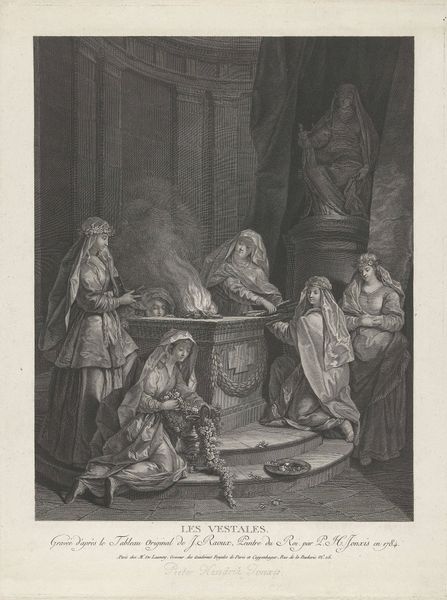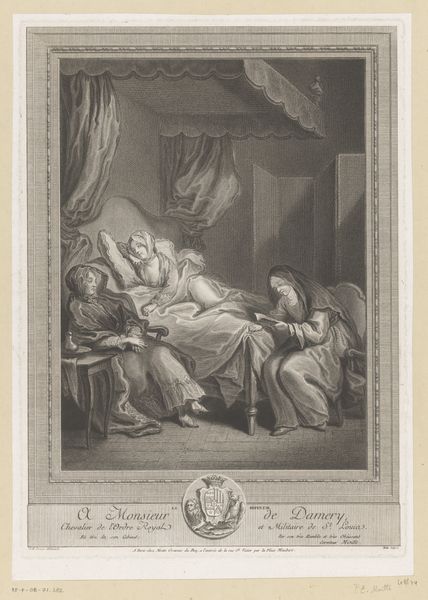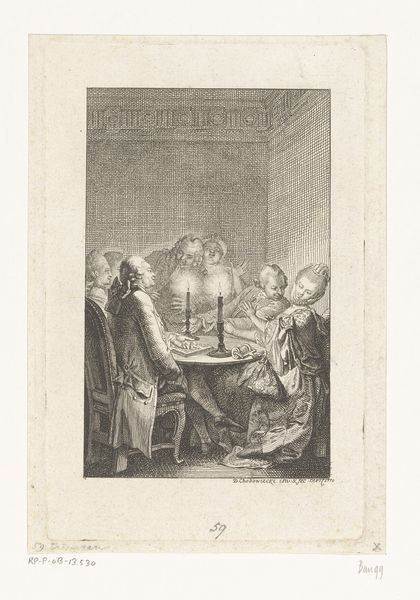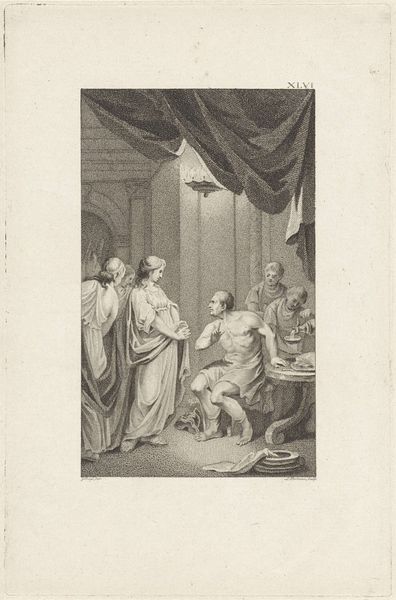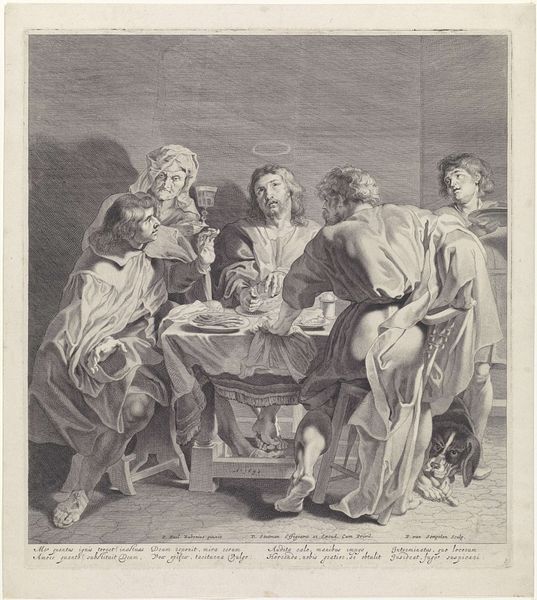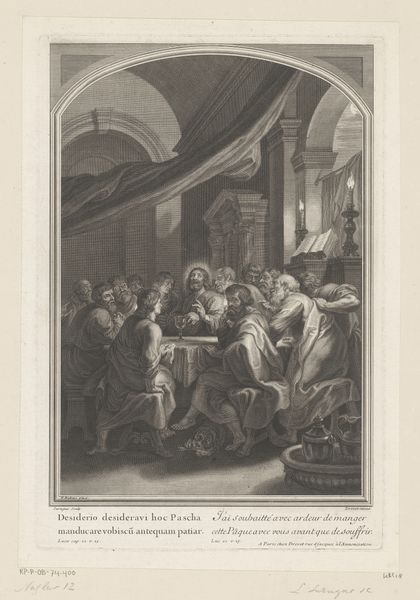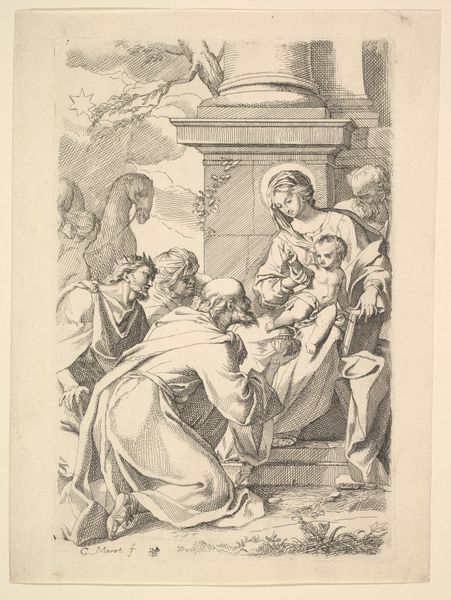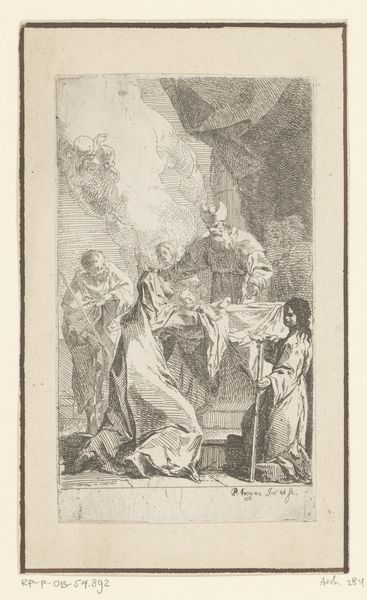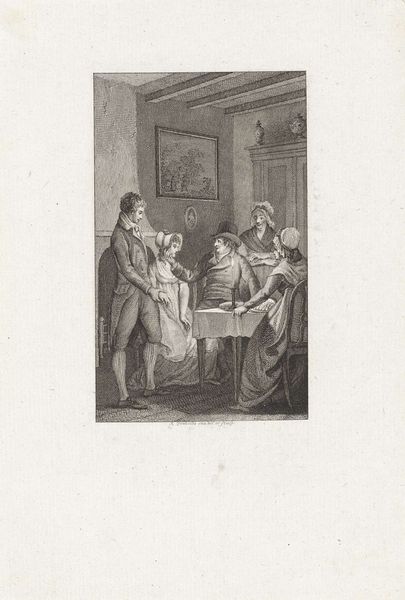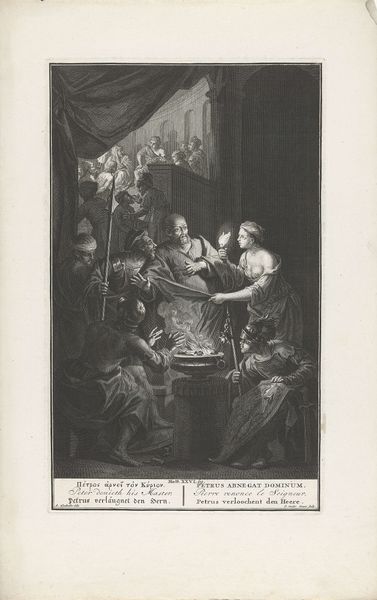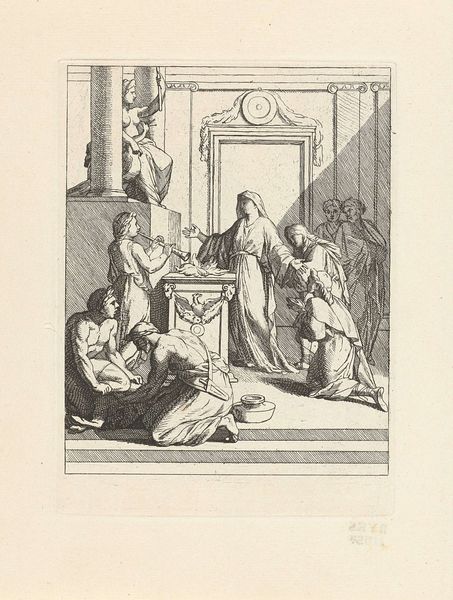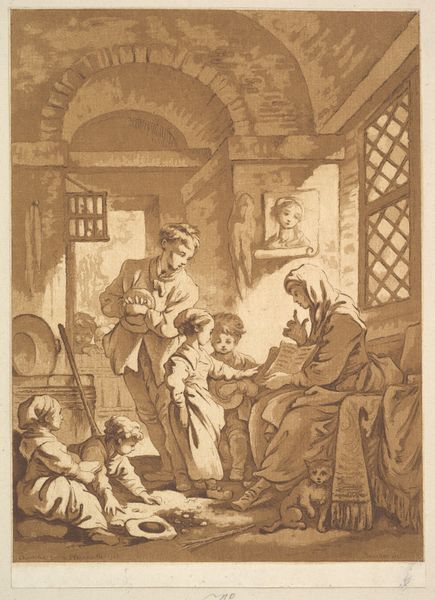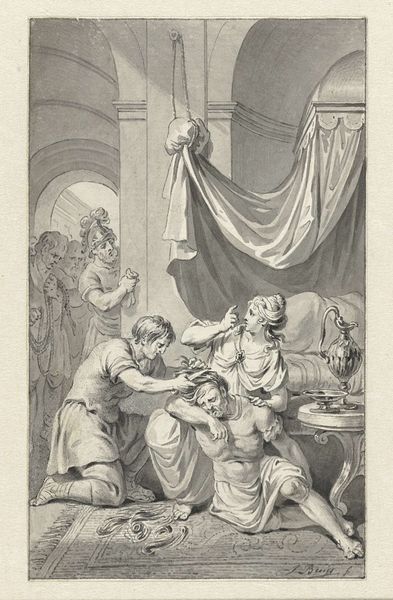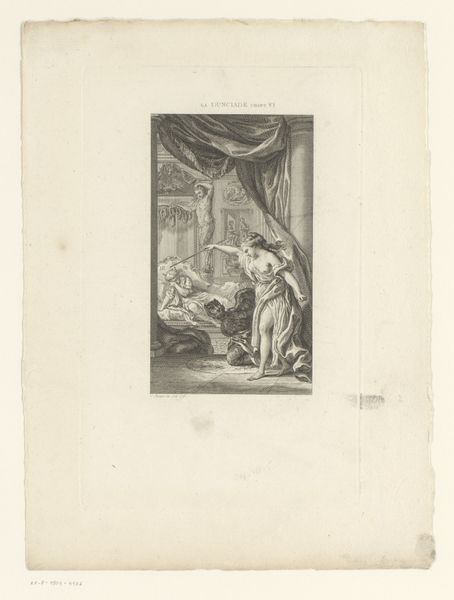
La Matrone d'Ephese, from Contes et nouvelles en vers par Jean de La Fontaine. A Paris, de l'imprimerie de P. Didot, l'an III de la République, 1795 1795
0:00
0:00
drawing, print, engraving
#
drawing
# print
#
figuration
#
soldier
#
men
#
history-painting
#
engraving
Dimensions: Sheet: 8 11/16 × 6 7/16 in. (22.1 × 16.4 cm)
Copyright: Public Domain
Curator: This engraving by Jean-Louis Delignon, made in 1795, is titled "La Matrone d'Ephese," or "The Matron of Ephesus." It's based on a drawing by Fragonard and was part of an edition of La Fontaine's tales. Editor: Oh, it's quite a somber scene. A weeping woman, draped in what looks like mourning garb, dominates the foreground. The whole thing has a neoclassical coolness, despite the clear emotional distress. Is it just me, or does the Roman soldier look a little… bored? Curator: "Bored" might be one word for it! Delignon perfectly captures the central scene in La Fontaine's tale. A widow, inconsolable with grief, vows to stay by her husband’s tomb. A soldier is there to guard corpses hanging on crosses nearby. They get, uh, close, while he is supposed to be on duty. Editor: Ah, so that's the source of his detachment! This piece is dripping with the artistic politics of the French Revolution: this almost journalistic interest in civic values contrasts strangely with Fragonard’s Rococo whimsy, right? We see the theatricality of mourning as performance for the public. Curator: Yes, it becomes a fascinating exploration of public versus private, grief versus desire. Delignon’s skill really highlights the satirical edge. It's subtle, but there in the posture of each figure, their gaze and the composition. The way light and shadow almost perform like stage actors. Editor: Absolutely. Notice the placement of the urn between them? That creates a tangible separation, it acts almost like a stand-in for moral or legal considerations. What are the implications of displaying this work publicly, so soon after a radical revolution that redefined marriage? It invites us to think about female agency, perhaps even female hypocrisy... Curator: Hypocrisy, humanity, they're both there. It feels brave. In those days when art had explicit missions, to slip humor inside political engagement reveals something so raw and honest. Editor: It definitely highlights an undercurrent of the complex morality during that pivotal moment in time, something more layered than simple revolutionary virtue. Thank you for guiding me.
Comments
No comments
Be the first to comment and join the conversation on the ultimate creative platform.
